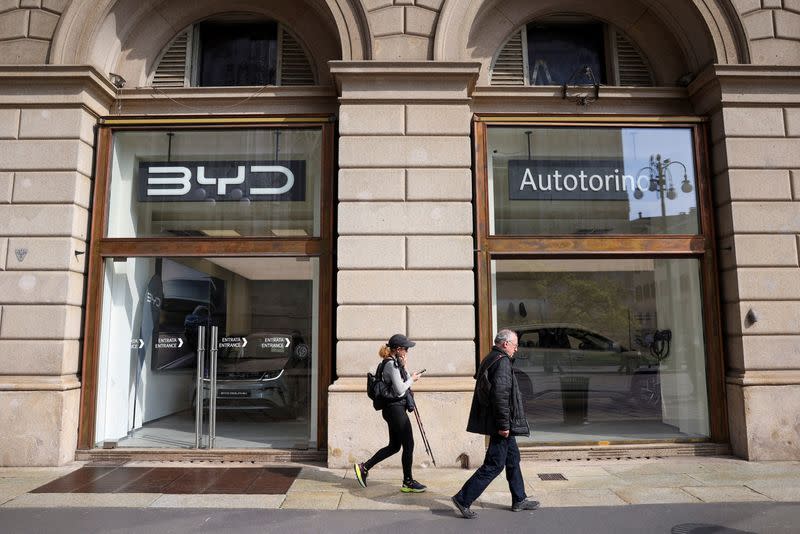Chinese electric vehicle makers are scaling back their expansion plans in Europe as the bloc’s recent anti-subsidy probe has eroded their confidence in the region, according to a new trade lobby survey.
In a survey of 30 Chinese NEV companies and institutions, 82% respondents reported their investment confidence in Europe had declined due to the subsidy probe.
Some 83% of the surveyed companies also reported that the probe caused concern among their European partners, such as distributors and leasing companies, resulting in plans being delayed or scaled back.
Also on AF: Chinese Carmakers Call For 25% Retaliatory Tariffs on EU Cars
The survey was conducted by the China Chamber of Commerce to the EU and the China Economic Information Service of Xinhua, a Chinese state-backed national newspaper.
The poll was conducted in April and May, and was part of a report on Chinese EV manufacturers and Europe.
The survey report came on the heels of a closed-door meeting between Chinese automakers and Beijing officials. During the meet, Chinese carmakers called for retaliatory tariffs on Chinese imports of European cars.
They also accused the EU of attempting to “spy” on the Chinese NEV industry via the probe, by seeking details on everything from battery compositions to supplier information.
Sales, brand image hit
According to the survey, released on Wednesday, 73% companies also reported that the probe had hit their sales in Europe.
The EU plans to impose additional duties of up to 38.1% on Chinese producers such as BYD, Geely and SAIC, and on Chinese-built cars of Tesla and other western automakers.
However, analysts have pointed out that Chinese EVs will remain cheaper than their Western rivals despite those tariffs.
A key part of Chinese EV firms’ strategy was to capitalise on the price difference and expand their European sales by improving their brand recognition and image. But the anti-subsidy probe appears to have hampered that too.
Some 67% of the surveyed firms said the anti-subsidy probe had damaged their reputation. Slower European partnerships are likely to further dampen Chinese firms’ effort to boost recognition, as they were a key part of the strategy to help firms like BYD and Nio break into markets across Europe.
And 72% of respondents noted that the probe had hit morale among their local European employees, and made it harder to attract top talent in the region.

Long-term commitment unshaken
The report went on to take note of recent comments from chiefs at European carmakers such as BMW and Stellantis, who have said tariffs were the “wrong approach” and “a major trap” that will affect the competitiveness of the bloc’s auto giants.
It also claimed that focus on Chinese purchase subsidies was misplaced, as Europe continues to subsidise purchases of NEVs in the region.
It is worth noting, however, that the European probe was focused primarily on state subsidies for Chinese carmakers. Billions of dollars in state support have allowed Chinese carmakers to establish plants and manufacture EVs at significantly lower costs than their Western rivals, giving them a massive market advantage.
Chinese EV makers have also, faced far less scrutiny to date on their emissions and carbon footprint. Addressing those concerns could add further costs for manufacturers.
The report also went on to claim the market share of Chinese EV makers in Europe had been “selectively exaggerated”.
Speaking at the report’s release, former Assistant Secretary-General of the United Nations Brice Lalonde said Europe should rather “seek to collaborate with China.”
“The last thing we need is a trade war,” Lalonde was quoted as saying by Beijing mouthpiece Xinhua.
Still, despite the concerns of heightened trade tensions, surveyed Chinese EV makers indicated they remained committed to Europe as a key strategic market.
Firms indicated they still hope to expand their presence in the region over the long-term, with a majority planning to establish factories in Europe in the next five years.
“While increasing localisation in Europe remains a long-term strategic goal for these companies, the EU’s actions have clearly dampened enthusiasm for such efforts,” the report said.
View this post on Instagram
- Vishakha Saxena
























